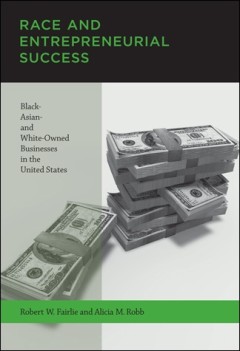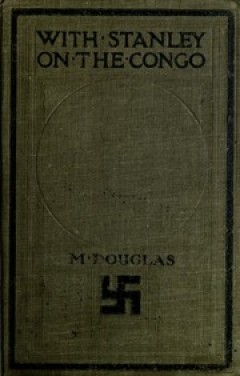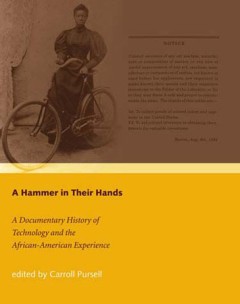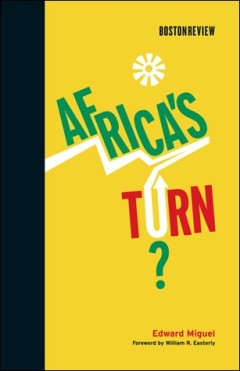Filter by

Black women's stories of everyday racism: narrative analysis for social change
- Edition
- -
- ISBN/ISSN
- 9781003460077
- Collation
- -
- Series Title
- -
- Call Number
- -
- Edition
- -
- ISBN/ISSN
- 9781003460077
- Collation
- -
- Series Title
- -
- Call Number
- -

Public Policy and Research in Africa
This open access book responds to the need for a specifically African focus on public policy. It outlines the fundamental principles of public policy research, and engages with major issues in the study of public policy from an African perspective, covering essential topics such as the location and centrality of social sciences in relation to public policy, leadership, methodology, institutions…
- Edition
- 1
- ISBN/ISSN
- 978-3-030-99724-3
- Collation
- -
- Series Title
- -
- Call Number
- XIII, 278

The Palgrave Handbook of Development Cooperation for Achieving the 2030 Agenda
This open access handbook analyses the role of development cooperation in achieving the 2030 Agenda in a global context of ‘contested cooperation’. Development actors, including governments providing aid or South-South Cooperation, developing countries, and non-governmental actors (civil society, philanthropy, and businesses) constantly challenge underlying narratives and norms of developme…
- Edition
- -
- ISBN/ISSN
- 978-3-030-57940-1
- Collation
- -
- Series Title
- -
- Call Number
- -

Medical Missionaries and Colonial Knowledge in West Africa and Europe, 1885-1914
This open access book offers an entangled history of hygiene by showing how knowledge of purity, health and cleanliness was shaped by evangelical medical missionaries and their encounters with people in West Africa. By tracing the interactions and negotiations of six Basel Mission doctors, who practised on the Gold Coast and in Cameroon from 1885 to 1914, the author demonstrates how notions of …
- Edition
- -
- ISBN/ISSN
- 978-3-031-27128-1
- Collation
- XVIII, 454
- Series Title
- -
- Call Number
- -

White and black: an inquiry into South Africa's greatest problem
Abbyy GZ,Animated GIF,Archive BitTorrent,Cloth Cover Detection Log,DjVu,DjVuTXT,Djvu XML,Dublin Core,Grayscale PDF,Item Tile,MARC,MARC Binary,MARC Source,Metadata,OCR Page Index,OCR Search Text,Page Numbers JSON,Scandata,Single Page Original JP2 Tar,Single Page Processed JP2 ZIP,Text PDF,chOCR,hOCR
- Edition
- -
- ISBN/ISSN
- -
- Collation
- 284 p
- Series Title
- -
- Call Number
- -

Race and Entrepreneurial Success: Black-, Asian-, and White-Owned Businesses …
A comprehensive analysis of racial disparities and the determinants of entrepreneurial performance--in particular, why Asian-owned businesses on average perform relatively well and why black-owned businesses typically do not.Thirteen million people in the United States--roughly one in ten workers--own a business. And yet rates of business ownership among African Americans are much lower and hav…
- Edition
- -
- ISBN/ISSN
- 9780262272476
- Collation
- 1 online resource (x, 240 pages) :illustrations
- Series Title
- -
- Call Number
- -

With Stanley on the Congo
The book relates to Sir Henry Morton Stanley, a Welsh journalist and explorer. Stanley is known for his exploration of central Africa, his search for missionary and explorer David Livingstone and his search for the source of the Nile. Historical - United Kingdom & Africa. Biographical interest.
- Edition
- -
- ISBN/ISSN
- -
- Collation
- 215 p
- Series Title
- -
- Call Number
- 967.24

A hammer in their hands : a documentary history of technology and the African…
Scholars working at the intersection of African-American history and the history of technology are redefining the idea of technology to include the work of the skilled artisan and the ingenuity of the self-taught inventor. Although denied access through most of American history to many new technologies and to the privileged education of the engineer, African-Americans have been engaged with a r…
- Edition
- -
- ISBN/ISSN
- 0262162253
- Collation
- 1 online resource (xviii, 397 pages) : illustrations
- Series Title
- -
- Call Number
- -

Technology and the Dream: Reflections on the Black Experience at MIT, 1941–…
Originally published: 2001.Includes index.Transcripts of more than seventy-five oral history interviews in which the interviewees assess their MIT experience and reflect on the role of blacks at MIT and beyond. This book grew out of the Blacks at MIT History Project, whose mission is to document the black presence at MIT. The main body of the text consists of transcripts of more than seventy-fi…
- Edition
- 1st MIT Press pbk. ed.
- ISBN/ISSN
- 9780262286305
- Collation
- 1 online resource (1054 pages) :illustrations
- Series Title
- -
- Call Number
- -

Africa's turn?
"By the end of the twentieth century, sub-Saharan Africa had experienced twenty-five years of economic and political disaster. While 'economic miracles' in China and India raised hundreds of millions from extreme poverty, Africa seemed to have been overtaken by violent conflict and mass destitution, and ranked lowest in the world in just about every economic and social indicator. Working in Bus…
- Edition
- -
- ISBN/ISSN
- 9780262254977
- Collation
- 1 online resource (xii, 161 pages) :illustrations.
- Series Title
- -
- Call Number
- -
 Computer Science, Information & General Works
Computer Science, Information & General Works  Philosophy & Psychology
Philosophy & Psychology  Religion
Religion  Social Sciences
Social Sciences  Language
Language  Pure Science
Pure Science  Applied Sciences
Applied Sciences  Art & Recreation
Art & Recreation  Literature
Literature  History & Geography
History & Geography